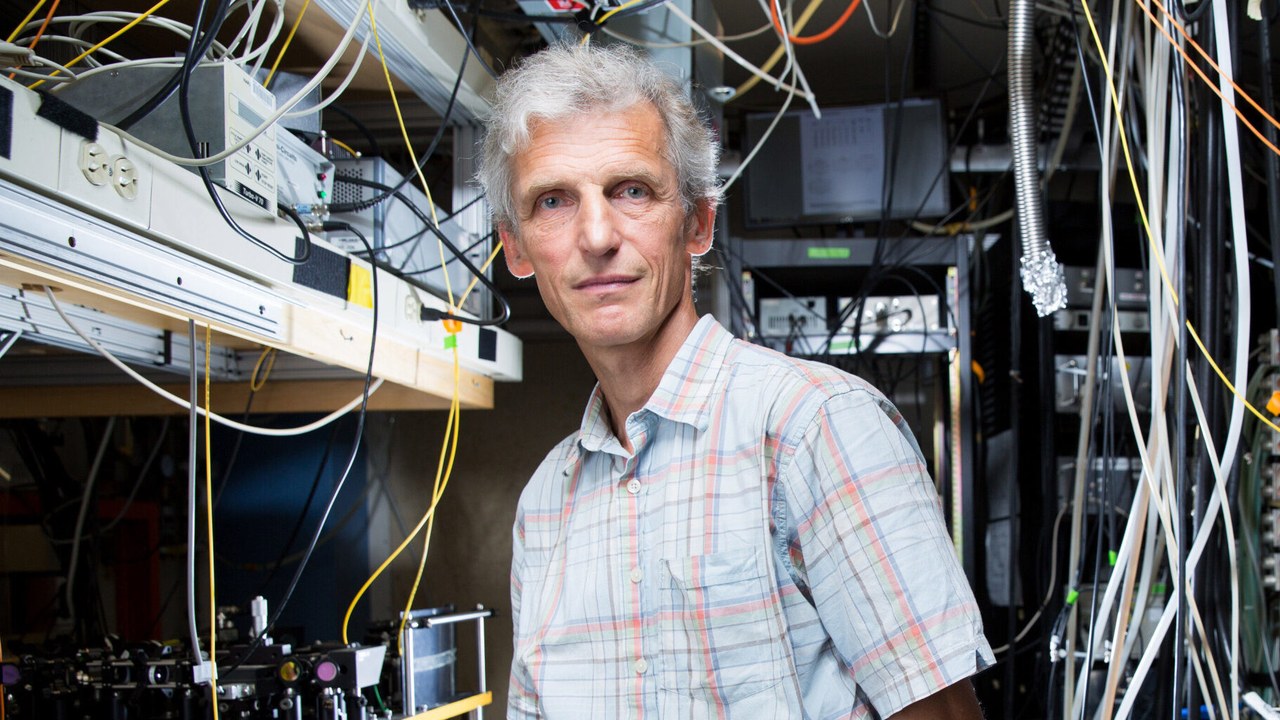Wolfgang Ketterle: Spin physics in ultracold atoms
Colloquia
- Speaker
-
Wolfgang Ketterle (2001 Nobel Laureate)
MIT Physics Department, USA - When
-
2023/09/08
16:30 - Place
- DIPC Josebe-Olarra Lecture Hall
- Add to calendar
-
iCal

Ultracold atoms offer a unique platform to study spin physics. When atoms are arranged in an optical lattice in form of a Mott insulator, the atomic motion is frozen out and the study and control of the spin degree of freedom emerges as a new frontier. Heisenberg spin models, where only neighboring spins interact, are the paradigmatic model for many interesting phenomena. Until very recently, all experimental studies with cold atoms addressed the special case of an isotropic Heisenberg model. Using lithium-7 atoms and Feshbach resonances to tune the interactions, we have created spin ½ Heisenberg models with adjustable anisotropy, including the special XX-model which can be exactly solved by mapping it to non-interacting fermions. Spin transport changes from ballistic to diffusive depending on the anisotropy. Special transverse spin patterns in the form of helices are exact eigenstates of the Heisenberg model and are called phantom states since they carry momentum, but no energy. Using rubidium atoms and two atoms per site, we have realized also spin 1 models. Our studies of spin dynamics illustrate the role of ultracold atoms as a quantum simulator for materials and for elucidating fundamental aspects of many-body physics.
Recording of Prof. Ketterle's colloquium
About the speaker
Wolfgang Ketterle obtained his PhD at the Max-Planck-Institute for Quantum Optics in Garching. In 1990 he moved to MIT as a postdoc and joined the faculty there in 1993. Since 1998 he is John D. MacArthur Professor of Physics there. His research focuses on experimental investigation of the properties of cold trapped atoms and molecules. His group was among the first to achieve a Bose-Einstein condensate and to explore the properties of this new form of matter. For this he was awarded the Nobel prize in Physics in 2001 (equally shared with Carl Wieman and Eric Cornell). Since then he has investigated the properties of both bosonic and fermionic ultracold gases such as superfluidity, vortex formation, sound propagation and pioneered the use of Feshbach resonances in for ultracold atoms and demonstrated the first atom laser.
